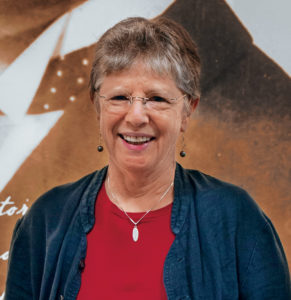Berea College’s historic commitment to interracial education confers a sense of pride and of responsibility to all members of the community. This year, Bereans not only marked the 50th anniversary of the March on Washington, but a select group also embraced the opportunity to revisit a number of significant sites associated with the Civil Rights Movement in the 1960s. While honoring the past is an essential part of our present, it is so only to the degree that it motivates us to further involvement. Dr. Meta Mendel-Reyes reflects both on our past and our commitment to the future of civil rights.
A crowd of over 100,000 fills the area around the reflecting pool at the Lincoln Memorial. The first thing that strikes you is the diversity of the people in terms of race, gender, and age. Here are four generations of an African American family, the younger generations surrounding a grizzled great-grandfather leaning heavily on a cane. Over there is a large group carrying signs that identify them as members of Local 1199, a health care workers union. Behind them are members of an African American sorority. And so on. This is the scene that greets three Berea College students and me. We have ridden all night in a bus to Washington, DC to participate in the 50th Anniversary of the March on Washington, where Dr. Martin Luther King, Jr. gave his famous “I Have A Dream” speech.

What makes the event so unusual and inspiring is that so many different people and causes have gathered together. Signs calling for “Justice for Trayvon” mingle with placards demanding an increase in the minimum wage; calls for immigration reform meet banners calling for gay rights. All of us have come together for a single reason: to remember King and the March that took place a half-century ago.
Yet the speakers exhort the crowd not to dwell in the past but to continue working to make Dr. King’s dream a reality. The Civil Rights Movement is not over, they tell us, as long as poverty, hunger, and inequality still exist; in King’s words, “injustice anywhere is a threat to justice everywhere.”
Back home in Berea, the anniversary march exemplifies our commitment to interracial education. John G. Fee founded Berea College as the first interracial college in the South. But is the work complete here? Sometimes we are tempted to become complacent, as if everything in the founder’s dream has been achieved. But Fee himself warned against this: “Tis well for a people, not only to retrospect the past, but having faith in the rectitude and stability of their institutions, lay plans also for the future.” What is the work that remains in the area of interracial education? Everyone has their own view, but I would start with increasing the diversity of our faculty and staff, including our leaders, which lags behind that of our student body. Our mission is not static, but dynamic; the Great Commitments are not a description of goals achieved, but a call to action.
Beloved Bereans …. I accept the charge of Berea’s 5th Great Commitment, to assert the kinship of all people and to provide interracial education with a particular emphasis on understanding and equality among blacks and whites
President Lyle D. Roelofs
Inaugural Address

